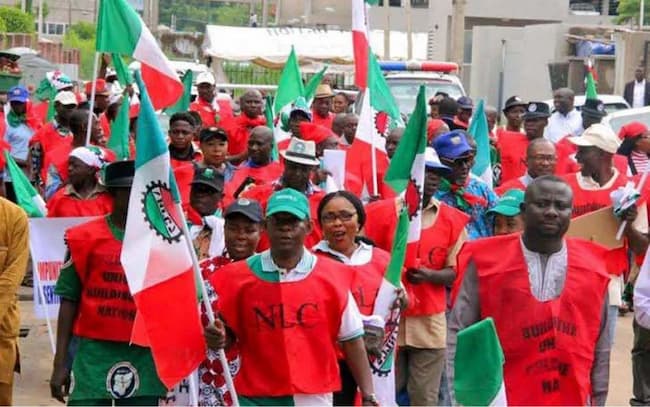In a move aimed at ensuring compliance with the new minimum wage, the Nigeria Labour Congress (NLC) has revealed plans to advocate for punitive measures against governors and local government administrators who fail to implement the revised wage.
Hakeem Ambali, the National Treasurer of the NLC, disclosed this during an interview in Abuja, highlighting the necessity for enforcement mechanisms in the Minimum Wage Act of 2019. He emphasized that the absence of punitive measures has emboldened some state governors to withhold payment of the current minimum wage, contributing to increased hardships for workers.
Ambali outlined the proposed measures, stating, “In the new minimum wage bill, which is expected to be signed into law soon, we have included clauses to make it challenging for governors to evade payment. It’s worth noting that some governors are actively involved in the negotiation process.”
The bill aims to introduce sanctions and ensure increased allocations to local governments, thereby eliminating excuses for non-compliance with the approved wage rates.
The initiative comes amid ongoing deliberations by the 37-member Tripartite Committee on Minimum Wage, established by the Federal Government. Scheduled to convene this week, the committee will examine recommendations from stakeholders across various sectors, including federal and state governments, the private sector, and organized labor.
President Bola Tinubu, through his Vice-president, Kashim Shettima, inaugurated the committee on January 30, 2024, with a mandate to propose a new national minimum wage reflective of current economic realities.
As discussions progress, an executive bill is expected to be forwarded to the National Assembly for the amendment of the existing Minimum Wage Act. The revised wage is anticipated to mitigate the impact of the removal of fuel subsidy, which has exacerbated financial burdens on citizens.
During public hearings, different regions proposed varying amounts for the minimum wage, reflecting regional economic disparities. Suggestions ranged from N485,000 to N850,000, with each zone advocating for a wage level deemed appropriate for addressing local economic conditions and ensuring workers’ welfare.













